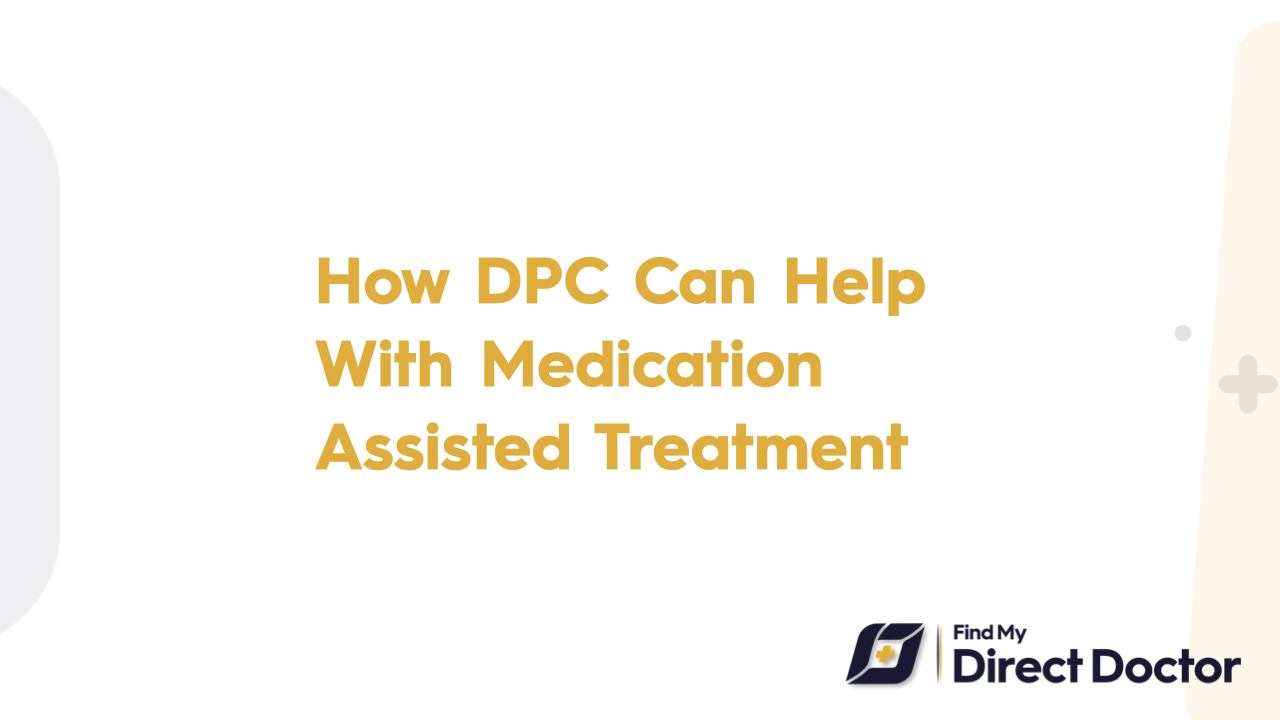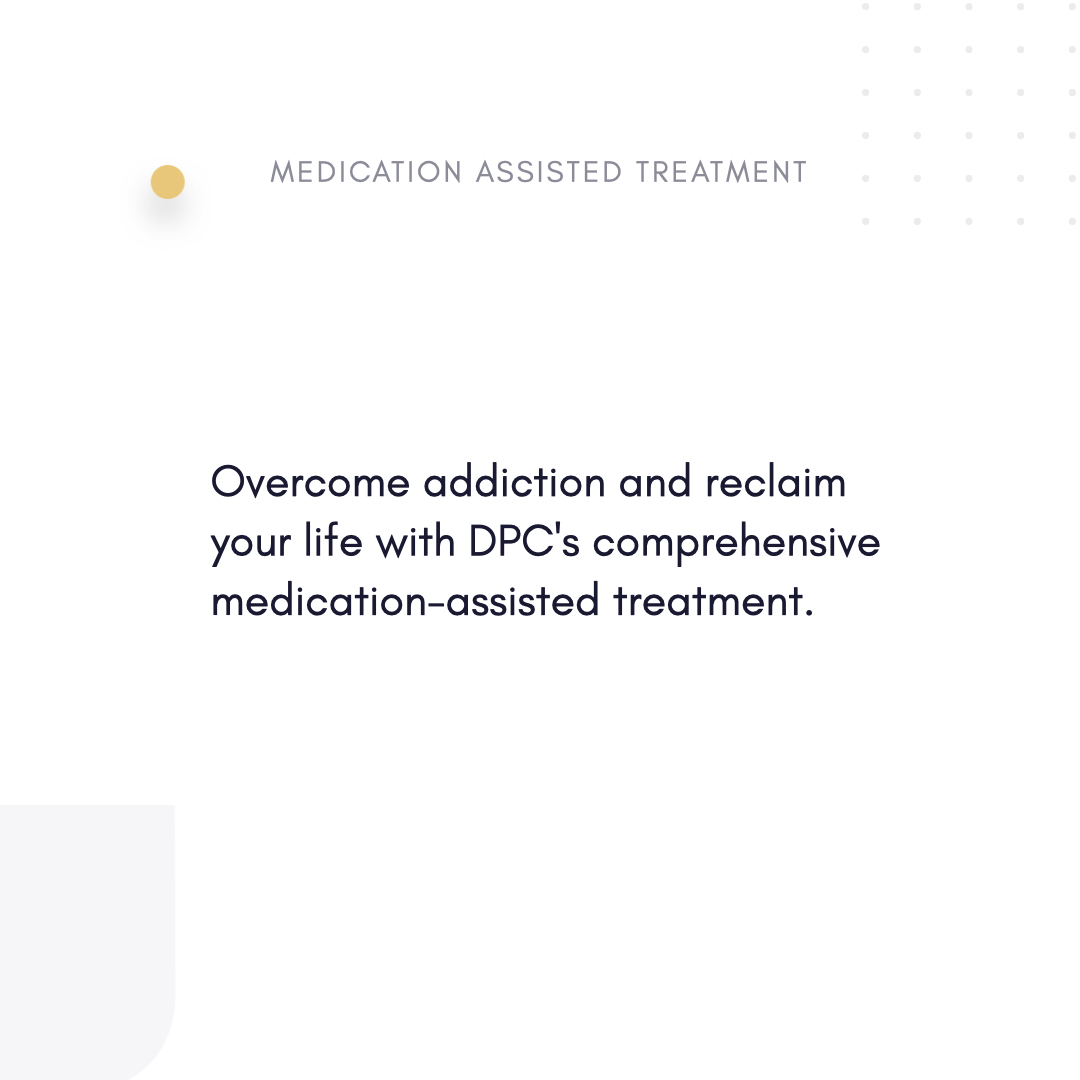Medication-Assisted Treatment (MAT) and Direct Primary Care (DPC): Compassionate Recovery, Personalized Support
If you have opioid use disorder (OUD), medication-assisted treatment (MAT) can help you get better. Direct primary care (DPC) makes sure that this journey is supported by ongoing, compassionate care that is tailored to your needs.

MAT: A Way to Combine Medications and Therapy
MAT uses counseling and medications that the FDA has approved to help people with OUD:
- Buprenorphine (Suboxone®): Lessens cravings and withdrawal symptoms.
- Methadone: Balances brain chemistry (given in clinics).
- Naltrexone (Vivitrol®) stops the effects of opioids.
To keep people from relapsing, treatment lasts a long time, sometimes for years.
Important information for patients:
- Uses: Treats OUD, lowers the chance of an overdose, and gets things working again.
- Safety: Low risk if handled correctly; needs to be checked on often.
- Costs: DPC has clear prices, while traditional MAT costs between 100 USD and 500 USD per month.
Risks of untreated OUD include:
- Overdose, infectious diseases, and legal problems.
How DPC Changes Success of MAT:
Direct Primary Care (DPC) replaces broken addiction care with support that is whole and focused on the patient.
1. Full Evaluation and Induction
- Planning for medical detox: Safely taper off opioids with help.
- Choose buprenorphine, methadone, or naltrexone based on your past.
- Managing co-occurring disorders: deal with anxiety, depression, or PTSD.
2. Easy coordination and low cost
- In-house counseling: Work with addiction experts for therapy.
- Clear costs: Add the cost of MAT medications and visits to the membership fees.
- Legal help: Help with treatment requirements set by the court.
3. Long-Term Care with Kindness
- Access 24 hours a day, seven days a week: Take care of withdrawal symptoms or cravings right away.
- To avoid relapse, you should get drug tests and change your dose on a regular basis.
- Community resources: Find NA meetings, sober housing, and job training.
Success Stories from Real Life
- Case 1: John, 32 years old, is addicted to heroin. John's DPC team gave him Suboxone and CBT, and he has been sober for two years.
- Case 2: Maria, 45, has OUD and chronic pain. Maria's DPC provider switched her to buprenorphine, which helped her pain and cut down on her use of opioids.
Questions and Answers: MAT in DPC
- Q: How long will I need MAT?
- A: It could take months to years; DPC slowly gets less stable.
- Q: Is it possible to get pregnant while on MAT?
- A: Yes. DPC works with maternal-fetal medicine to make sure pregnancies are safe.
- Q: Is it okay to take doses home?
- A: According to DEA rules, for stable patients.
- Q: What if I go back to my old ways?
- A: DPC changes treatment without judging; relapse is part of getting better.
Why DPC is the Best Place for Addiction Medicine
The Substance Abuse and Mental Health Services Administration (SAMHSA) stresses the importance of integrated care. DPC gets things done by:
- Cutting down on wait times: 90% of people start MAT within a week instead of the usual four weeks.
- Lowering the number of deaths from overdoses: Continuous care cuts the death rate in half.
- Members save between 1,000 USD and 5,000 USD a year by getting care in groups.
Final Thoughts
MAT in DPC is more than just replacing drugs; it's about rebuilding your life with medical help and understanding. With DPC, you get a partner who understands how complicated addiction is, gives you care without judging you, and walks with you on the road to lasting recovery. No problems with insurance or broken services—just constant support that helps you do better than you did before you got addicted.






